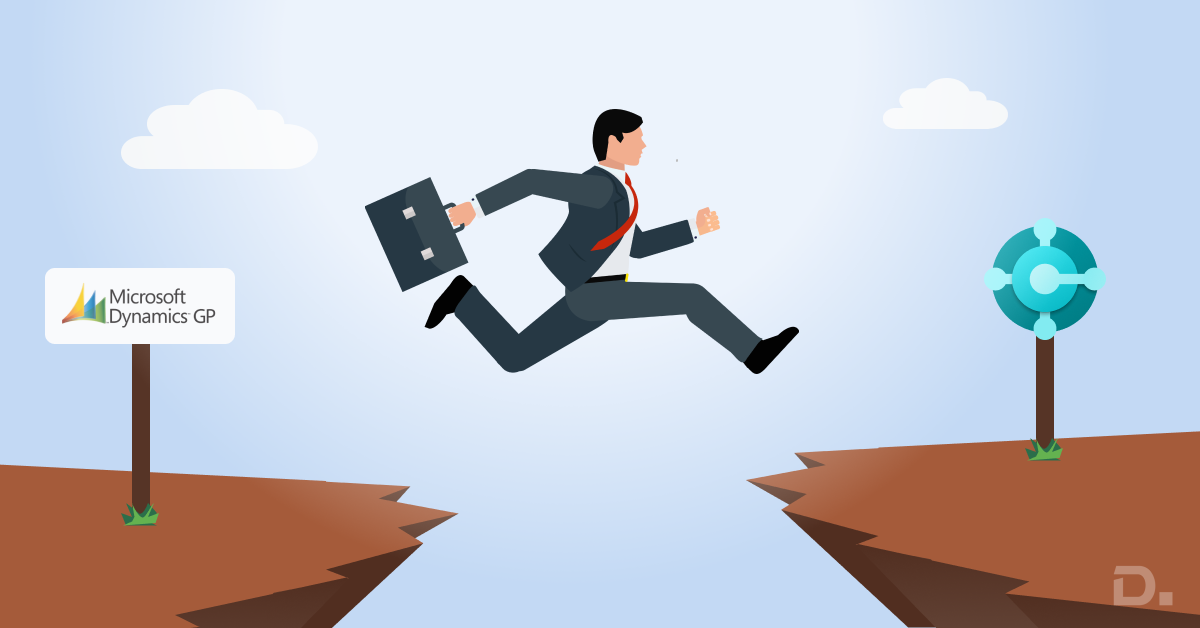Whether you’re a seasoned business or just starting out, your choice of business management software can significantly impact your operations. In a rapidly evolving technological landscape, staying ahead is not just an advantage; it’s a necessity. Microsoft Dynamics GP (Great Plains) has been a stalwart choice for many businesses, but now, a new horizon beckons – Dynamics 365 Business Central. This blog delves into the reasons behind and steps for migrating from Dynamics GP to Business Central.
The Imperative for Migration
Embracing change can be daunting, especially when you’ve relied on Dynamics GP for your business operations for years. However, several compelling reasons make migration to Business Central a strategic move:
Microsoft’s Shift Towards Cloud: Microsoft is aggressively pushing for cloud-based solutions. Dynamics GP is on an extended support plan, while Business Central is cloud-centric. Migrating ensures that you stay aligned with Microsoft’s evolving strategy.
Enhanced Functionality: Business Central offers enhanced capabilities that can streamline and improve your business processes, including finance, supply chain management, and customer relationship management. Features like AI-driven insights and automated workflows are invaluable.
Scalability: Whether you’re a small startup or a growing enterprise, Business Central can scale with your business needs, adapting to your evolving requirements seamlessly.
Integration with Other Microsoft Solutions: As a Dynamics 365 partner, you can leverage the integration capabilities with other Microsoft tools. This interconnectivity enhances your overall business efficiency and decision-making.
Data Security and Compliance: Business Central offers advanced security features and assists with compliance, vital for businesses dealing with sensitive customer data.
Steps for Successful Migration
Migrating from Dynamics GP to Business Central is a well-planned endeavor. Here’s a step-by-step guide:
1. Assessment and Planning
The first step involves a comprehensive assessment of your current Dynamics GP setup. Identify what works well and what doesn’t. You should also set clear goals for the migration and align them with your business objectives.
2. Data Migration
Data is the lifeblood of any business. Migrating your historical data from Dynamics GP to Business Central can be complex. Work with a Dynamics 365 partner to ensure that data is migrated accurately without loss or corruption.
3. Customization and Configuration
Business Central offers a high degree of flexibility in terms of customization. Tailor the software to suit your business processes. Leverage the expertise of a Dynamics 365 implementation partner to configure the system effectively.
4. Training and Familiarization
Invest in training for your team. A new system may cause resistance, but with adequate training, your staff can adapt quickly. A Dynamics 365 support partner can provide training and support for your team.
5. Testing and Quality Assurance
Before going live, thoroughly test the system to ensure that everything functions as expected. Identify and resolve any issues promptly.
6. Go Live
Once you’re confident in the system’s functionality, it’s time to go live. Implement the new system across your organization. Expect some initial hiccups, but with proper support, these can be resolved swiftly.
7. Ongoing Support
The journey doesn’t end with the migration. As a Dynamics 365 partner, you’ll need ongoing support to ensure the system runs smoothly. This includes updates, maintenance, and addressing any issues that may arise.
8. Continuous Improvement
Business Central allows for ongoing optimization. Regularly review your processes and adapt the system to align with evolving business needs and industry trends.
Choosing the Right Partner
A successful migration relies heavily on partnering with the right Dynamics 365 implementation and support provider. Here’s what to look for in a Microsoft Solutions Partner:
Experience: A partner with a proven track record in handling migrations is essential. They should have a deep understanding of Dynamics GP and Business Central.
Customization Expertise: Ensure the partner can tailor the software to your unique business needs effectively.
Training and Support: Look for a partner that provides training and ongoing support to your team.
References: Ask for references and case studies of successful migrations they’ve handled.
Pricing: Get a clear understanding of the costs involved in the migration, including any hidden or ongoing expenses.
Communication: Effective communication is key. Ensure that the partner maintains open and transparent lines of communication throughout the migration process.
Leveraging the Power of Business Central
Beyond the initial migration, Microsoft Dynamics Business Central opens up a world of possibilities for your business. Here are some additional ways you can leverage the power of this versatile platform:
1. Real-time Data Insights
One of the standout features of Business Central is its ability to provide real-time data insights. With built-in AI-driven analytics, you can gain a deeper understanding of your business operations, customer behavior, and market trends. This enables you to make more informed decisions, seize opportunities, and proactively address challenges. As a Dynamics 365 partner, you have access to these data-driven tools to drive growth.
2. Streamlined Financial Management
Business Central streamlines financial management with comprehensive tools for budgeting, forecasting, and financial reporting. You can manage your cash flow, track expenses, and automate financial processes, reducing the risk of errors and improving financial visibility. This not only makes your financial management more efficient but also enhances your decision-making capabilities.
3. Enhanced Supply Chain Management
For businesses involved in manufacturing or distribution, Business Central offers advanced supply chain management features. You can optimize inventory levels, reduce carrying costs, and improve order fulfillment accuracy. By streamlining your supply chain, you can meet customer demands more effectively and reduce operational inefficiencies.
4. Customer Relationship Management (CRM)
As a Dynamics 365 partner, you understand the importance of maintaining strong customer relationships. Business Central integrates seamlessly with Dynamics 365 for Sales and Customer Service. This means you can access customer data, sales history, and customer interactions within one unified system. Providing exceptional customer service and nurturing leads becomes more straightforward.
5. Integration with Microsoft Ecosystem
Being part of the Microsoft ecosystem, Business Central integrates seamlessly with other Microsoft solutions like Microsoft 365, Power BI, and Azure. This integration allows for a more cohesive digital environment, fostering collaboration, data sharing, and improved productivity.
6. Mobility and Accessibility
In today’s fast-paced business world, mobility is crucial. Business Central is accessible from anywhere, whether you’re in the office, at home, or on the go. This empowers your team to work efficiently and stay connected, ensuring business continuity in any scenario.
7. Compliance and Data Security
Compliance with data protection regulations is non-negotiable in today’s business landscape. Business Central is designed with data security and compliance in mind, helping you meet industry and regional standards. As a Dynamics 365 partner, you can assure your clients of the highest data security standards.
8. Continuous Updates and Support
Microsoft is committed to the ongoing development and improvement of Business Central. Regular updates and enhancements keep the platform current and equipped to address evolving business challenges. Your Dynamics 365 support partner plays a pivotal role in keeping your system up to date, resolving issues, and ensuring that your business is always running at its best.
In Closing
Migrating from Dynamics GP to Business Central is not just a software transition – it’s a strategic move that can drive growth, efficiency, and competitiveness for your business. As a Dynamics 365 partner, you have the opportunity to lead the way in helping businesses realize the full potential of this powerful platform.
With real-time insights, streamlined financial management, and integrated CRM, Business Central can be a game-changer for your business. Leveraging the Microsoft ecosystem and ensuring compliance, you’ll be well-equipped to navigate the complexities of today’s business landscape.
Remember, the journey doesn’t end with migration; it’s an ongoing commitment to optimizing your processes and staying aligned with the latest industry trends. With the right Dynamics 365 implementation and support partner, you can embark on this journey with confidence, knowing that your business is well-positioned for success in the digital age. Don’t just adapt to change; embrace it and thrive in a dynamic business world.
Conclusion
Migrating from Dynamics GP to Business Central is a pivotal decision that can drive growth and efficiency in your business. As a Dynamics 365 partner, you’re not just making a software change; you’re investing in the future of your organization.
With the right Dynamics 365 implementation and support partner, you can navigate this transition successfully, unlocking the full potential of your business. Don’t hesitate – embrace the future of business management with Microsoft’s Business Central.



